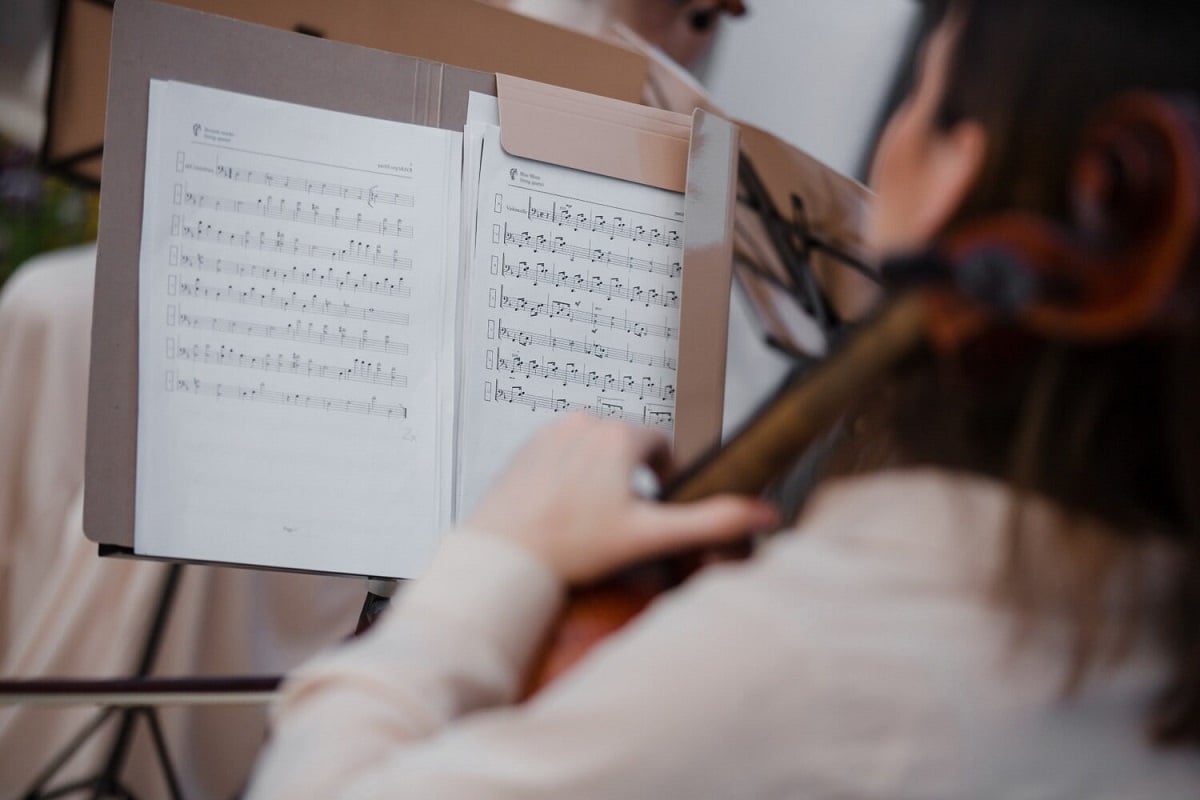
GCSE Music entries increased by 2% last year but have suffered a 23% drop since 2010
Photo: Marko Milivojevic
Call to scrap GCSEs amid paltry arts entries
The summer exams must go, former education secretaries say, as a new commission reports the need for students to develop creativity.
Former education secretaries want GCSEs scrapped, as official figures show scant changes to the decline in arts entries.
Interim findings of the Times Education Commission, released Wednesday (January 26), suggest the UK's education system must do more to develop students' creativity.
More than 300 educators, artists, scientists, employers and politicians, including two former prime ministers, contributed to the report, a final version of which is expected later this year. Its commissioners include V&A Director Tristram Hunt, National Theatre and Culture Recovery Fund Board Chairman Damon Buffini, and children's author Michael Morpurgo.
READ MORE:
- Creative degree applications rise as funding is halved
- Schools may have to suspend music teaching, DfE warned
Nine of 11 former education secretaries involved said they want assessment reform, including Kenneth Baker, who introduced the GCSEs as Education Secretary under Margaret Thatcher.
Tony Blair favoured a "complete overhaul" of the exam system.
"As a result of the way the world is changing, it’s more important than ever before that young people are taught not just about facts, but to be creative."
Cultural figures such as Rufus Norris, Artistic Director of the National Theatre, and sculptor Antony Gormley backed this more holistic view of education.
"A narrowing down of that GCSE base… gives teachers more time for flexibility, more time to bring practise-based learning into it, for people to stand up and express themselves," Norris said.
Decade of decline
GCSE entries across three key arts subjects – music, drama, and performing arts – have fallen by 38.7% since 2010.
Of these, performing arts has the steepest decline – down two thirds – and music the mildest at 23%.
Art and design is the only creative subject for which entries have increased over the past decade (up 14.5%).
Interest in the other three subjects picked up slightly after 2018, Ofqual figures show, but not enough to change the overall pattern of decline.
Entries in arts and design, music and drama each grew by 2% last year. However, performing arts entries fell 3%, and Ebacc subjects all enjoyed increases, with the exception of some languages.
What could change
Former education secretaries said any replacement for the GCSEs must focus on what pupils can do, not what they can recite.
"I would like a broad qualification that gave young people the chance to demonstrate the level of learning they’d reached," David Blunkett, Education Secretary under Blair, told the commission.
There are myriad options: Some school districts in Shanghai, for example, are trialling ways to assess creativity.
Education expert Michael Barber has proposed adding five extra days to the school year that are ringfenced for pupils to visit theatres and museums and participate in sporting activities, or undertake work experience in secondary school.
Entrepreneurs like James Dyson and Richard Branson also shared their thoughts with the commission on encouraging creativity within schools.
Branson said a new curriculum must focus on creativity if the UK is to foster imagination and innovation.
"The most successful people around the world are creative people – creative musicians, creative entrepreneurs, creative artists – they’re the people that make a real difference in this world, and the education system is not designed for them at all."
"Unless they quit school early, a lot of that creativity can be completely stifled."
Join the Discussion
You must be logged in to post a comment.